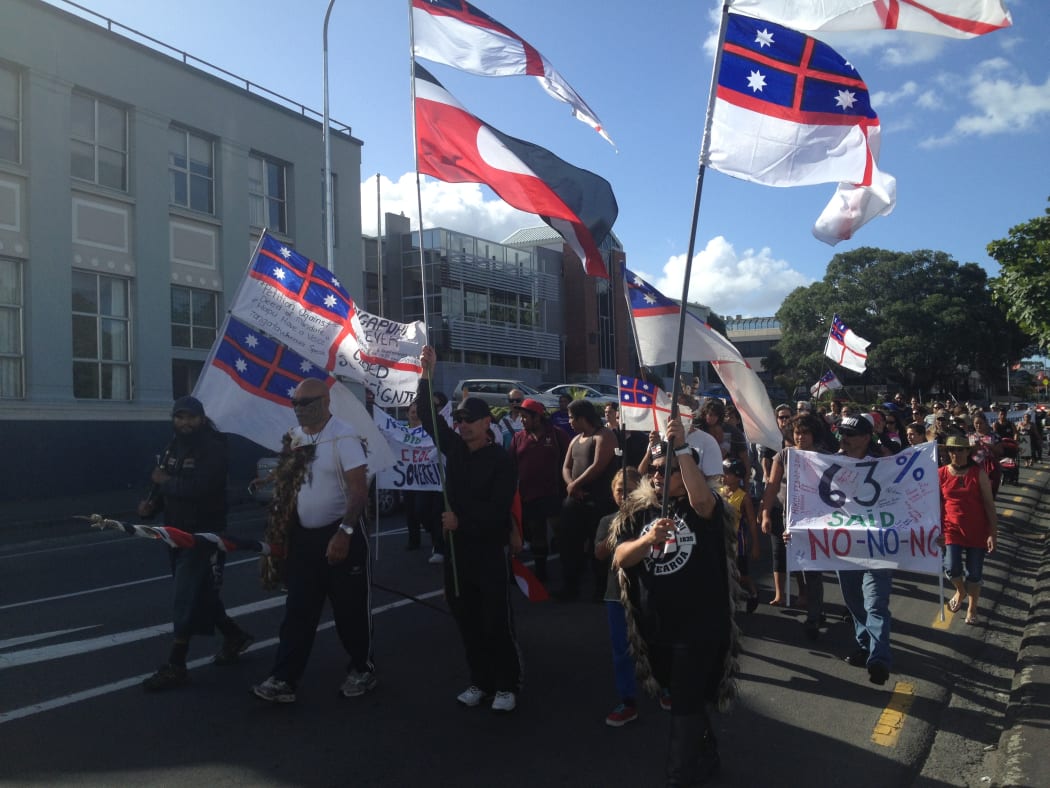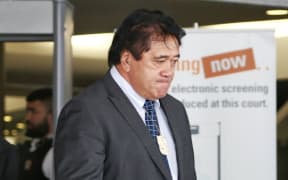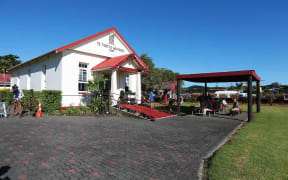The warring factions of Ngāpuhi have come up with a plan to settle their differences and then, hopefully, their Treaty claim.

Protesters took to the streets last September to oppose Tūhoronuku's appointment to carry out treaty negotiations on behalf of Ngāpuhi. Photo: TE KOTAHITANGA
Negotiations with the Crown for the Ngāpuhi treaty settlement have been delayed by almost a decade because of inter-hapū disputes over who should be representing them.
The Ngāpuhi Engagement Group has been systematically working through the issues and released its final report Maranga Mai last night.
The report accepted the argument from Te Kotahitanga - and the Tribunal - that hapū, the sub-tribes of Ngāpuhi, should be driving the process.
Read the final Maranga Report in full here
Last year, the Waitangi Tribunal found flaws in Tūhoronuku's mandate to negotiate a settlement and how the board represented hapū.
The report's release had been delayed because Tūhoronuku and hapū alliance Te Kotahitanga could not reach an agreement over whether there should be a seat for the majority of Ngāpuhi who were living in Auckland - many of whom had lost contact with their hapū in the north.
Ngāpuhi had already successfully argued before the Tribunal that the hapū did not cede sovereignty, so the plan would allow for hapū to exercise their rangatiratanga.
It was designed to give hapū a say at all levels, including in how they chose their representatives.
Te Kotahitanga co-chair Pita Tipene said the hapū needed to come together collectively as well as on their own.
"We need to move forward to achieve the vision that we have for Ngāpuhi and that about self determination and self reliance, this is really part of a larger economic and social programme that has been implemented to improve the circumstances of our people."
Tūhoronuku chair Hone Sadler said he was happy with the report despite the short time given for consultation.
Now the report was going back to Ngāpuhi for their consideration he said, "do what needs to be done to unify Ngāpuhi in its approach to settlement, get on board, work through the issues and come to a space where we can work together during this settlement."
The report recommended there would be a larger body, Te Hononga Nui, a space for hapū representatives to have discussion and make recommendations.
There would also be a smaller body, Te Hononga Iti, which would execute the decisions of the hapū and hold legal responsibility for the mandate.
Between those two groups were six regions who would have hapū representation and decide on the direction of the negotiations.
Also, given their history, there would be a dispute resolution process to sort things out if there are any disagreements.
The document released last night also outlined ways of strengthening urban participation - a sticky point for both parties which delayed report's release.
According to the 2013 census, 80 percent of Ngāpuhi live outside the rohe with 40 percent of them in Auckland.
The report said hapū would increase communication and incorporate those living outside the rohe and strengthen their hapū connections. It also proposed an urban forum of five with one of those five becoming a trustee.
Over 100 submissions were put forward from iwi and hapū members for the working parties' consideration.
The report now goes to Ngāpuhi members and the Minister of Treaty Negotiations Chris Finlayson for consideration.
Once agreed on and finalised, treaty negotiations will recommence.








